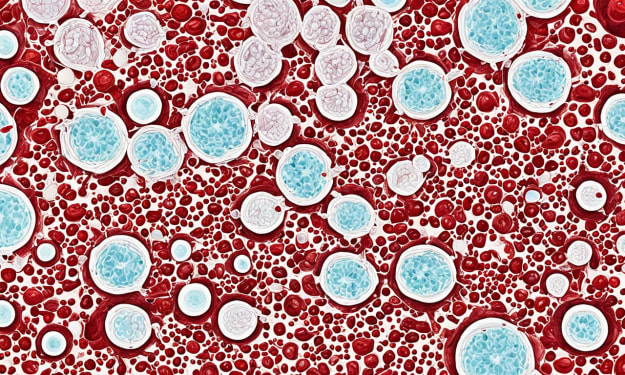What They Don't Tell You in Medical School
Final Year Musings from a Would-be Doctor

Medical school is like serving an apprenticeship. You have no real responsibility for anything, and at the same time, you know at the end of it all, you will have responsibility for everything. The role of a medical student is that of a halfway house inmate; you can generally do as much or as little as you like. You can attend lectures, or bunk off the entire semester, you can leave hospital sites pretty much whenever you want, and no one will generally ask why; you can see amazing things—surgeries, clinics, ward rounds—just for the hell of it. And, to boot, you don’t get paid for any of it—on the contrary, you pay for the privilege of serving another couple of years learning how to do the roles you’re shadowing, in a very roundabout way.
There’s also an incredible juxtaposition to this: I’m in my final year of medical school in the UK, and so am teetering on the brink of reaching full adulthood, with the MD initials soon to be stamped behind the name my parents gave me. But I don’t quite feel that I’m there yet. Nobody expects much of me—why would they? I’m not employed by anyone. I’m just here to learn. I attach myself to junior doctors like a parasite; I follow them around like a lost puppy. I help them with jobs—blood forms, X-ray requests, history taking, and examining patients, referring to surgeons. I ask questions, and hope that they aren’t too overwhelmed by the magnitude of their job, and how many patients they need to save today to answer me. But the truth is, you don’t fully appreciate the enormity of the burden that will soon land on your shoulders. How could you? You’re still safety-netted by the cocoon of the surrounding doctor-led team.
My dual persona stems from this artificial distance. I stand in A&E, and watch people throw up their circulating blood volumes, in the resuscitation area. I perform chest compressions on people whose hearts already stopped working 20 minutes ago; their brains starved of oxygen. I stick needles and cannulas into arms and feet; I catheterize genitals to monitor urine output. I take things away, with the only explanation I can give to the patients themselves is that it forms part of our detective work. To make you better, sometimes we need to make you worse.
I have developed a knack of knowing full well when a person is unlikely to survive, and everyone in the department agrees, even though we still stick an oxygen mask on, heart trace wires, pump them with drugs and fluids, and generally try to counteract this view. Because the alternative is to accept failure, however inevitable. Doctors like to delay the truth, in the way that the rest of us do, when faced with bad news. It’s not acceptable to be seen to give up.
I can do this. I accept this is part of the job I will likely do for the rest of my life. I accept that people can’t live forever. But what I can’t accept is going home at the end of the day, and knowing that this will happen to the people I care about. There is a huge void between the calm, borderline robotic persona I maintain within the confines of a hospital ward, and that which enjoys spending time with my friends, family, boyfriend—even the dog. I cannot fathom how I will behave if the same fates I encounter in my student role will somehow befall them. I am quite literally unable to imagine it; not even for the horror, or to provoke some sort of emotion. I cry when I see contestants on baking shows fail their technical cake challenges; I empathize with Disney films; I avoid articles in newspapers that detail the horrors of terrorism or violent criminal activity. I can barely cope with that. Yet I am solid in an actual crisis.
I told this to my boyfriend, and he didn’t believe me. He couldn’t reconcile the girl he sees outside of the hospital with the one in it; it makes no sense to him. It makes no sense to me either. But perhaps it’s a necessary division: how could I, as an emotional wreck on viewing The Lion King for the thousandth time, be able to cope with caring for the 29 year old renal failure case; the suicidal teenager; the father-of-four with terminal cancer? It wouldn’t befit any professional, let alone a doctor. So I believe, hardened as I have become, it is a persona borne out of necessity—to keep my head when all about me are losing theirs, to paraphrase Kipling—Indeed, your life, perhaps, one day will be in my hands. I have to make sure that those hands aren’t shaking.
About the Creator
Grace Hatton
Doctor, pharmacy graduate, research scientist, sometime activist
Enjoyed the story? Support the Creator.
Subscribe for free to receive all their stories in your feed. You could also pledge your support or give them a one-off tip, letting them know you appreciate their work.






Comments
There are no comments for this story
Be the first to respond and start the conversation.